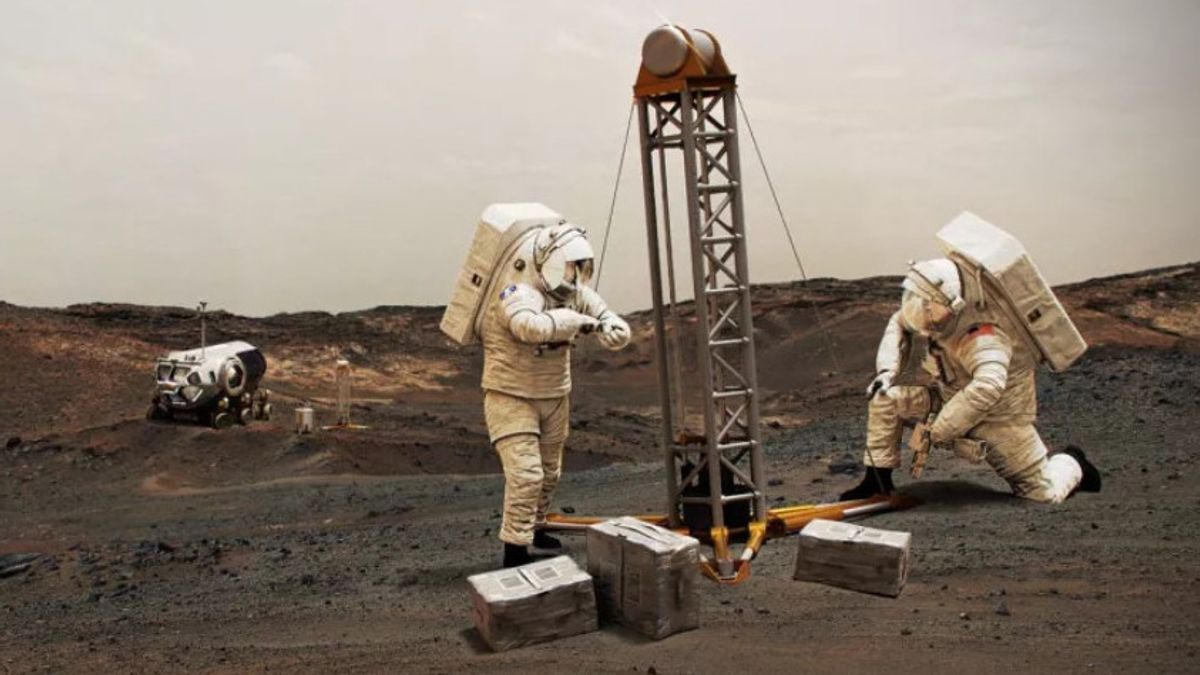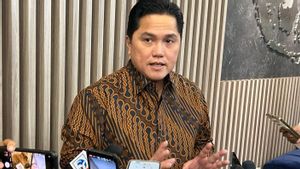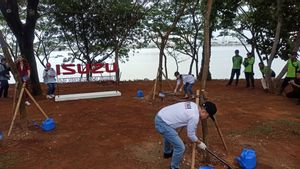JAKARTA - Space travel can actually have a bad impact on astronauts, especially on parts of their brains. If they want to return to the mission, at least have to wait for three years later.
A new study found how the impact of space mission travel was on astronauts, where scientists managed to compare brain scans of 30 astronauts taken before spaceflight.
Eight of the astronauts in this study carried out a two-week mission, while 18 astronauts carried out a six-month mission. Four astronauts have a mission that lasts about a year. Scans were carried out after they returned to Earth.
As a result, the ventricle or cavity inside the brain containing cerebrospinal liquid, extends significantly inside the brains of astronauts who go to the International Space Station (ISS) on a mission that lasts at least six months.
The study, published yesterday in the journal Scientific Reports, explained that cerebrospinal liquid gives the brain protection and nutrition when disposing of waste.
But as astronauts go into space, the fluid inside the body shifts towards the head and pushes the brain higher into the skull, causing an expansion of the ventricle.
During the study, scientists determined the level of magnitude of the ventricle varied depending on how long astronauts were in space.
The more time people spend in space, the bigger their ventricles are. The biggest jumps occur when you go from two weeks to six months in space," said a professor of applied physiology and kineciology,eg. Seidler at the University of Florida and one of the study's authors.
There is no further increase between six-month and one-year missions, meaning the magnitude of the ventricle appears to be decreasing after six months, which surprised the researchers.
"This is good news for future Mars travelers who may spend (approximately) two years in microgravity," said Seidler.
And the impact is minimal for astronauts on a two-week trip to space. These findings, of course, are positive for the commercial space industry as short space tourism flights are increasingly being carried out.
People who spend just a few weeks show little or no change in this structure. This is good news for those who use short space junket," Seidler explained.
Although these findings sound positive, the brains of experienced astronauts have ventricles that remain enlarged ahead of their next mission and have less room for venture expansion with spaceflight.
Scientists do not know how long the ventricles have fully recovered after spaceflight, but their analysis shows astronauts are recovering from 55 percent to 64 percent to their pre-flight level, about six to seven months after a six-month mission to the ISS.
According to Seidler, the implications are significant for astronauts who have been to space more than once. So, it takes about three years after the mission for the ventricle to fully recover.
Seidler insists that this ventricle expansion is the longest-lasting brain change observed as a result of spaceflight. The full implication of this phenomenon remains a mystery.
"We don't know for sure what the long-term consequences for the health and health behavior of space explorers are," said Seidler.
The discovery of Seidler and his rekna can be useful for NASA and other space agencies planning future missions. Even so, Seidler emphasized that more research was needed.
He has also started working on a new project that will see health and long-term recovery of up to five years after a six-month space flight. This was quoted from CNN International and Earth, Friday, June 9.
The English, Chinese, Japanese, Arabic, and French versions are automatically generated by the AI. So there may still be inaccuracies in translating, please always see Indonesian as our main language. (system supported by DigitalSiber.id)













